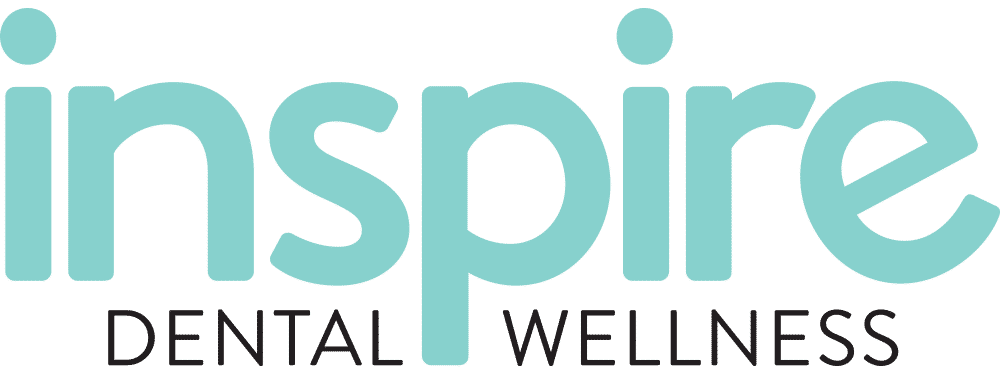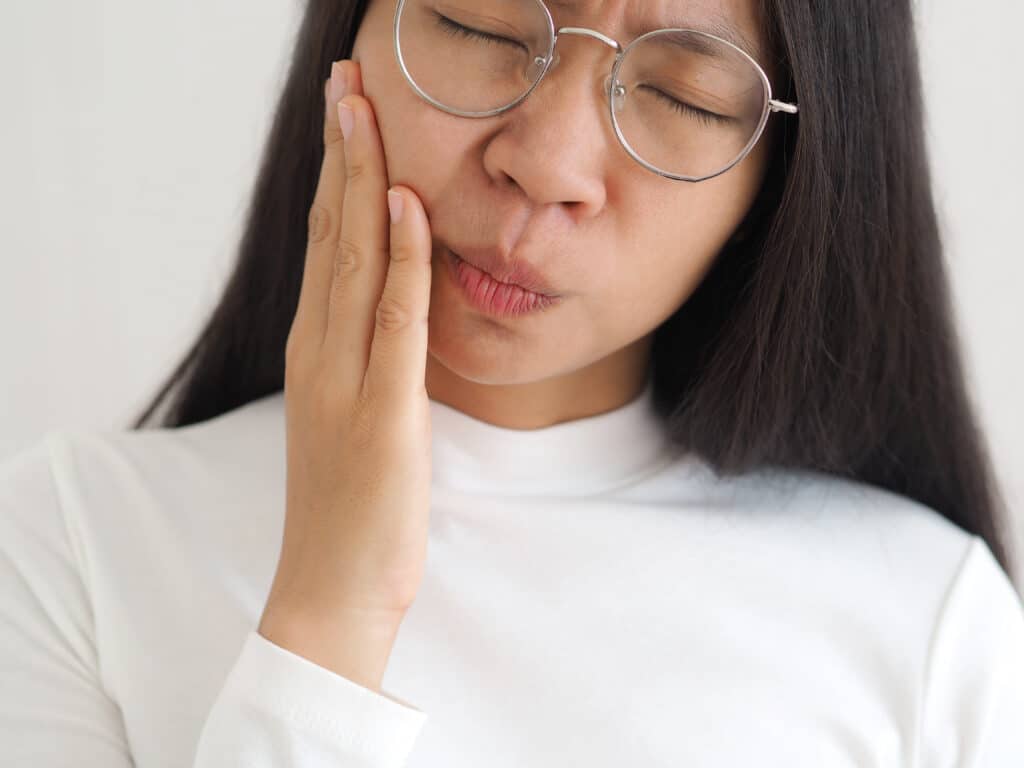If you’re someone who struggles with a temporomandibular joint (TMJ) disorder, you may have experienced a flare-up in your TMJ after dental work. That’s because certain dental procedures, including common ones like routine cleanings, can cause irritation to the jaw and the area around it. Depending on the extent of that irritation – and the extent of your TMJ – the result could be a TMJ flare-up that requires a bit of extra care and attention in the hours and days after seeing your dentist.
TMJ is a disorder that affects the joints of the jaw, as well as surrounding muscles and ligaments. While symptoms do tend to come and go, flare-ups can be quite debilitating, and it makes sense that you’d be wary of anything that may lead to discomfort.
Fortunately, while jaw pain after dental work is not uncommon, it’s also not totally untreatable. Here’s what to know about why your TMJ may be exacerbated by dental work – plus helpful tips for feeling better.
Why You May Experience a TMJ Flare-Up After Dental Work
The connection between dental work and TMJ has less to do with the procedures themselves and more to do with the position your mouth is in while they happen.
In order to access your teeth and gums, a dental specialist needs you to keep your mouth open wide for a long period of time. It’s this sustained movement that can lead to a TMJ flare-up, since it requires the jaw muscles to work overtime. Depending on the procedure, you may also experience oral and/or facial inflammation that leads to further worsening of your TMJ symptoms.
Some of the most common TMJ symptoms you may experience after dental work include:
- Pain and/or pressure in the jaw, face, ears, or neck
- Jaw stiffness
- Jaw popping and clicking
- Difficulties opening and closing the jaw
- Locking of the jaw joints
- Headaches
- Hissing or ringing sound in the ears
- Pain behind the eyes
So, how long does TMJ take to heal on its own? Left untreated, TMJ symptoms will generally resolve within a few hours after dental work, though some people may experience symptoms that last for several days – or even weeks. The length of time it takes for TMJ symptoms to clear up depends on a number of factors, including how bad your TMJ pain is, the underlying cause of the disorder, and any current treatment methods you might be using.
Tips to Prevent Jaw Pain After Dental Work
If you are prone to extensive TMJ flare-ups, talk to your dentist ahead of any scheduled procedures so that they can try to accommodate your condition and reduce the risk of sustained discomfort.
Your dentist may recommend taking regular breaks during cleanings or other procedures to allow your jaw to rest. They may also give you opportunities to massage and stretch your jaw joints, which could prevent a flare-up of TMJ or reduce its severity.
Stress and anxiety can play a role in post-dental work jaw pain, too. That’s because the more stressed we are, the more we tend to grind and clench our teeth (a condition called bruxism). You can help reduce dental-related stress through practices like deep breathing, meditation, and progressive muscle relaxation. Many people also find it helpful to distract themselves during dental procedures by listening to music or audiobooks on headphones.
How to Treat TMJ After Dental Work and Feel Better Sooner
TMJ disorder is a tricky condition, and it’s not always possible to fully prevent it. But you can help yourself feel better by trying out one or more proven TMJ treatments.
Some of the ways to relieve the pain and discomfort of TMJ include:
- Applying heat or cooling packs to the affected area (heat is best for muscle soreness; cold will help address any inflammation)
- Taking over-the-counter pain relievers such as Tylenol or Motrin
- Eating soft foods and avoiding anything too crunchy, chewy, or sticky
- Gently massaging or stretching your jaw and/or neck (talk to your dentist for tips on how to do this safely)
- Wearing a mouthguard
It’s also a good idea to take steps to manage stress outside of the dentist’s office and prevent jaw clenching. Not sure where to start? Check out a guided meditation app on your phone, or simply set aside some time for general relaxation in the lead-up to a dental appointment.
See a Dentist About TMJ Pain
Don’t let fear of TMJ pain lead to you putting off important dental care and procedures.
Our team at Inspire Dental Wellness is committed to helping you manage your TMJ, whether it’s caused by dental work or is more of an everyday problem. We offer TMJ therapy that helps you get on the path to a pain-free life. We’ll also work with you to reduce stress before, during, and after your dentist appointment, and we can guide you on gentle movements that will mitigate the risk of jaw tightness following dental work.
Please contact us today to schedule an appointment at our clinic in Orland Park.

